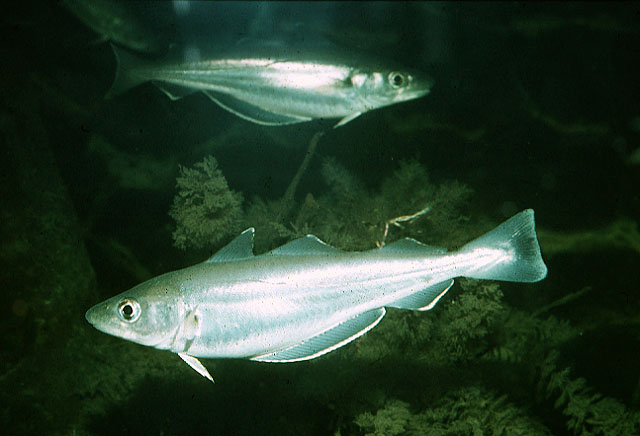| Gadidae (Cods and haddocks) |
| 70 cm TL (male/unsexed); max.weight: 3,110.0 g; max. reported age: 20 years |
|
benthopelagic; depth range 10 - 200 m, oceanodromous |
| Northeast Atlantic: southeastern Barents Sea and Iceland to Portugal, also in the Black Sea, Aegean Sea, Adriatic Sea and adjacent areas. Rare in the northwestern Mediterranean. |
|
Dorsal spines (total): 0-0; Dorsal soft rays (total): 30-40; Anal soft rays: 30-35. Body elongate; head small. Chin barbel small or absent. Lateral-line canals on head with pores. Color is variable; yellowish-brown, dark blue or green, sides yellowish grey, white and silvery on belly; often with a small dark blotch at the upper base of the pectoral fin. |
| More commonly found from 30 to 100 m, mainly on mud and gravel bottoms, but also on sand and rock. Feed on shrimps, crabs, mollusks, small fish, polychaetes and cephalopods. Migrate to the open sea only after the first year of life. Eggs are pelagic. Larvae and juveniles are associated with jellyfish. Upon maturity, small chin barbel characteristic of juveniles disappear (Ref. 53061). Spawn in batches (Ref. 51846). Utilized fresh, dried or salted, smoked and frozen; eaten steamed, broiled and baked (Ref. 9988). |
|
(Ref. 96402)
|
| harmless |
|
Source and more info: www.fishbase.org. For personal, classroom, and other internal use only. Not for publication.
Page created by Jen, 05.08.02,
php script by kbanasihan 06/09/2010 ,
last modified by
dsantos, 20/08/10

